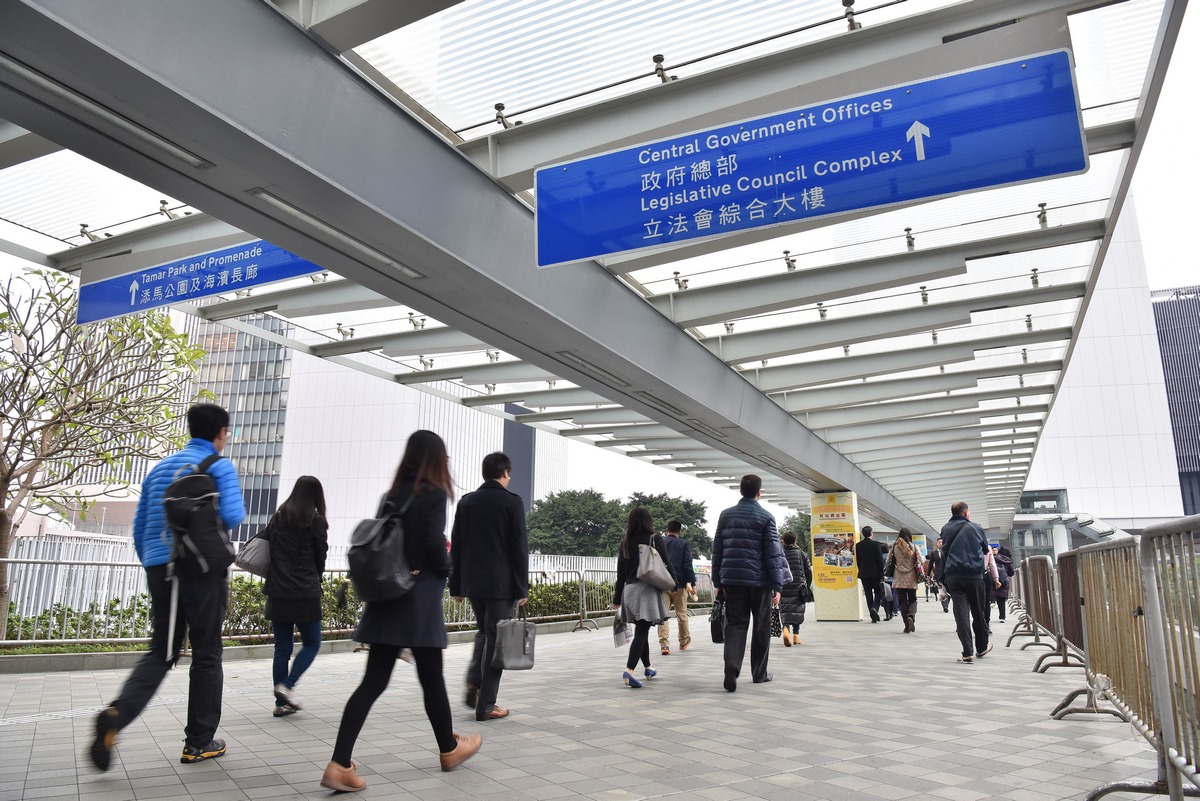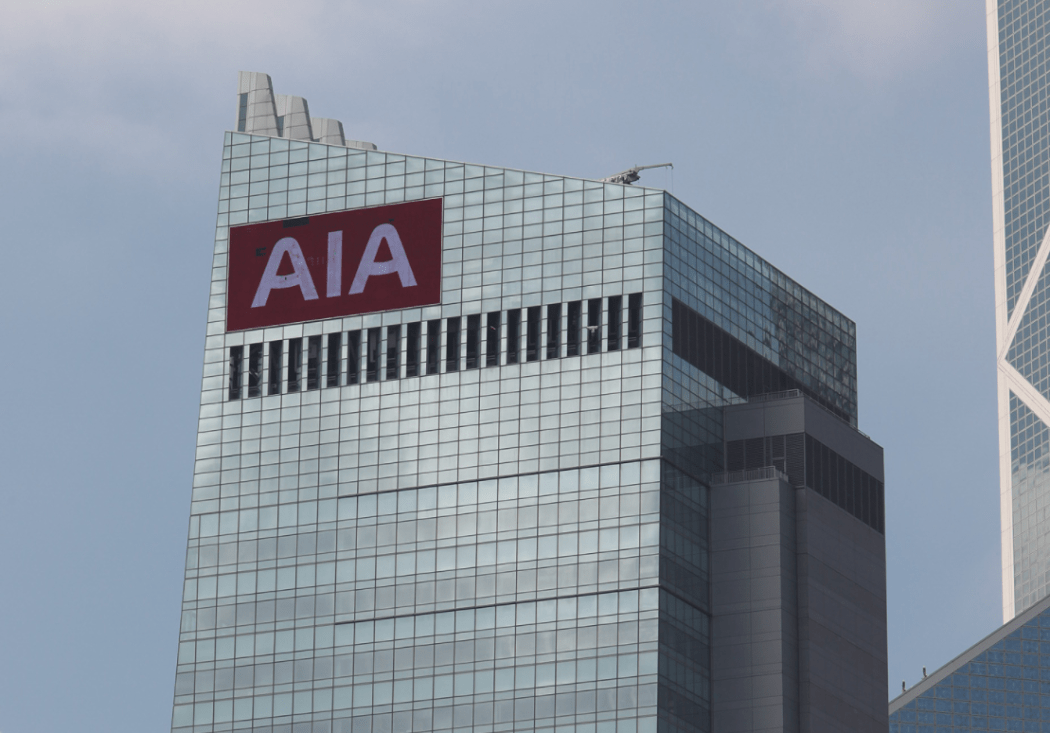Some of our imperial rulers seem to have overlooked a rather important point about Hong Kong’s future role.
We all understand that we have now abandoned the ambition to be “Asia’s World City”, a competitor for New York and London as a magnet for creative and enterprising individuals from all over the world, offering a lively, inviting and above all free environment for residents and visitors.

Now we are apparently going to be more specialised. We shall concentrate on being an international financial centre, which has the twin advantages of being easily achieved, because we are pretty much there already, and fulfilling our most important function in the eyes of Beijing bigwigs, which is to provide a conduit through which they can get their swag out of reach of the Party’s financial sleuths.
It is true that an international financial centre does not need to be famous for its observation of human rights and other civic furbelows. International finance is driven by greed, so the only requirement for such a centre is the presence of large amounts of money which financiers can hope to shake off the tree.
It may be that the government is a bit on the unsavoury side. It may execute adulterers in public, cut the hands off thieves, punish rape victims for not choosing death before dishonour, shut its eyes to honour killings, jail its critics, cheat in its elections and have inconvenient journalists dismembered in overseas embassies.

This will not discourage the international finance people, as long as there is money there in large quantities. Avarice trumps humanitarian considerations every time.
Still, there are some requirements for a financial centre. The first one is a basic recognition that the owner of money has the right to do what he likes with it, and that contracts will be honoured and if necessary enforced. Without this important bit of infrastructure the financial fish will swim elsewhere. Money is mobile, and will migrate to where it is appreciated.
There have been several signs recently that this important and indeed fundamental requirement is being forgotten.
One was a “forum” the other day at which several mainland performers stressed the importance of the judiciary getting on-side, as it were, with the Party’s preferences. The head of Beijing’s national security office in Hong Kong, for example, said that “judiciary staff” had the obligation to safeguard national security.
Yang Wanming, who is the vice president of the supreme people’s court, called for more cooperation and exchanges so that between the mainland and Hong Kong there would not be “a big discrepancy in terms of legal understanding”.

But there is a big discrepancy in terms of legal understanding. If Hong Kong judges are expected to support government policies and operate on the same lines as their mainland counterparts we will clearly no longer be able to advertise an independent judiciary, a line which is already straining some people’s credulity.
If judges are not allowed to handle national security cases fairly and in accordance with legal principles, then the more finicky ones will depart the bench, leaving it populated with time-servers who are willing to do the Party’s bidding and serve its perceived interests, in political and non-political cases alike.
Then we have the idea which, according to The Standard last week, is “gaining traction”, and this is that civil servants’ pensions should be made conditional on good behaviour. Those who criticise the government, suggested a union official, should be deprived of the pension.
This idea was warmly welcomed by the chairman of the Senior Government Officers Association. The chairman, Peter Wong Hyo, suggested that the annual declaration required of civil servants should be amended to include a version of the oath to observe the national security law.

The legal implications of this seem to have passed Mr Wong by. The payment of the pension is a contractual obligation dating from the time when the pensioner was appointed. This is why it is still paid to those retired civil servants who were taken on before the government decided that all future recruits should be thrown to the MPF sharks.
The current “annual declaration” has nothing to do with the civil servants’ conduct or political activities. It merely confirms that he or she is still alive. Making the payment of the pension conditional on some definition of “good behaviour” would be a flagrant violation of the contracts of the pensioners concerned.
Mr Wong, who clearly has a vivid imagination, said that introducing such a requirement would not violate freedom of speech because “Hongkongers still enjoy freedom of speech under the National Security Law”.
Well this is just an idea which, traction or no traction, may come to nothing. Our next example is already in action.
Hongkongers who migrate to the UK, a perfectly legal thing to do, are being refused access to their accumulated MPF funds, HKFP reported. This is a clear breach of the rules. You are entitled to withdraw your MPF funds if you move permanently out of the territory … in any direction.

The problem is that many of those moving to the UK do so under the BNO passport scheme, as this is the cheapest and easiest route. The Hong Kong and China governments, in a fit of pique over the UK’s offer to admit BNO holders to citizenship, refuses to recognise the BNO passport as an identity or travel document.
But, as David Webb was first to point out, this is not really relevant. The governments of China and its colonies have a perfect right to recognise or not recognise any document for the purposes of interactions with their border controls or policemen. The question whether someone has permanently moved overseas, on the other hand, is a factual matter, and the mover has a perfect right, if asked if he has the right of abode in another country, to produce a BNO passport, which for these purposes means whatever the UK government decides it means.
It seems that examples are piling up of people who were told that – because their migrant status in the UK was embodied in a BNO- they would not be able to withdraw their MPF funds. Even more scandalously, some fear they might not be able to do so when reaching the age of 65. This just will not do. The funds which people have deposited in the MPF are still their funds. They have a right to withdraw them under stipulated circumstances, which include permanent departure from Hongkong.
The odd wrinkle in this is that the refusal does not come from the Hongkong government, it comes from the international financial firm which runs the fund which the MPF owner has chosen for his savings. HSBC, Manulife and AIA have been mentioned, though it appears that they are following instructions from the MPF Authority.

So far none of the people who were refused their money has sued the company concerned. This state of affairs will not last for ever. True, without access to their MPF funds many of them are very short of money and the law is an expensive pursuit. But in the UK, unlike Hongkong, it is not an offence to pay someone else’s legal expenses. So sooner or later someone will sue.
The most likely outcome, I suppose, is that he or she will win. But even if the finance firm wins, it will be a PR catastrophe on the scale of the McDonald’s libel case. The idea that people deposited their savings with one of these financial mammoths and then were told they could not get them back will go down very badly with potential customers elsewhere.
The fact is that morally, and probably legally as well, these people are being robbed at the behest of the Hong Kong government via the MPF Authority. This means that if your wealth is managed in Hong Kong it is subject to confiscation at any time without the slightest legal pretext.
Some months ago I asked the gentleman who manages my savings on my behalf if any of the investments concerned were domiciled in Hong Kong. He assured me that they were not. I imagine this is going to become a rather popular question.
A financial centre depends on trust, a commodity which is now being squandered.
Support HKFP | Policies & Ethics | Error/typo? | Contact Us | Newsletter | Transparency & Annual Report | Apps
Help safeguard press freedom & keep HKFP free for all readers by supporting our team
| HKFP is an impartial platform & does not necessarily share the views of opinion writers or advertisers. HKFP presents a diversity of views & regularly invites figures across the political spectrum to write for us. Press freedom is guaranteed under the Basic Law, security law, Bill of Rights and Chinese constitution. Opinion pieces aim to point out errors or defects in the government, law or policies, or aim to suggest ideas or alterations via legal means without an intention of hatred, discontent or hostility against the authorities or other communities. |

More HKFP OPINION:
HKFP has an impartial stance, transparent funding, and balanced coverage guided by an Ethics Code and Corrections Policy.
Support press freedom & help us surpass 1,000 monthly Patrons: 100% independent, governed by an ethics code & not-for-profit.










